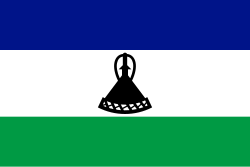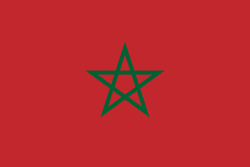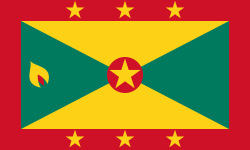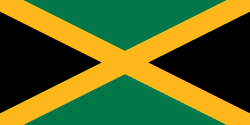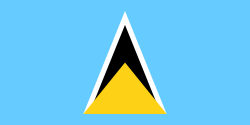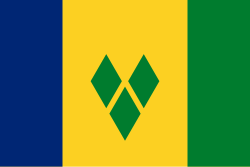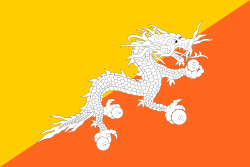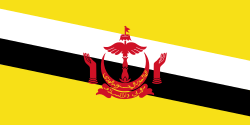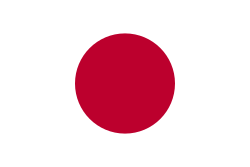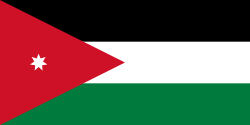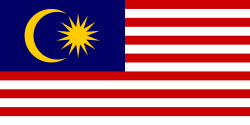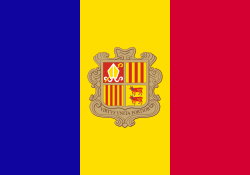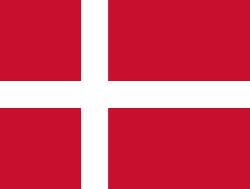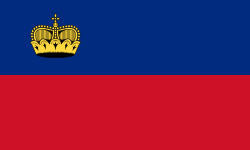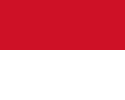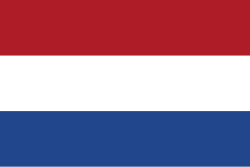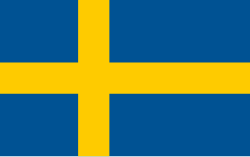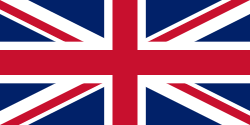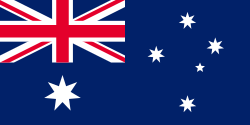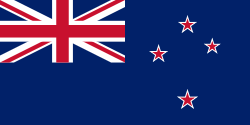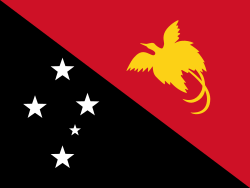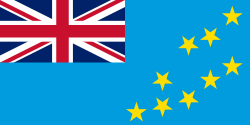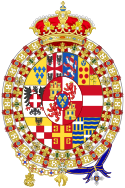Jindřich Lucemburský (velkovévoda)
| Jindřich | |
|---|---|
| velkovévoda lucemburský vévoda nasavský princ bourbonsko-parmský | |
 Jindřich (2023) | |
| Doba vlády | 7. října 2000 – dosud |
| Úplné jméno | Henri Albert Gabriel Félix Marie Guillaume vu Lëtzebuerg |
| Narození | 16. dubna 1955 (69 let) Betzdorf, |
| Předchůdce | Jan Lucemburský |
| {{{typ dědice}}} | Vilém Lucemburský |
| Manželka | Maria Teresa Lucemburská |
| Potomci | korunní princ Vilém princ Felix princ Ludvík princezna Alexandra princ Sebastian |
| Dynastie | Nasavsko-weilburská dynastie |
| Otec | Jan Lucemburský |
| Matka | Josefína Šarlota Belgická |
| Podpis |  |
| Některá data mohou pocházet z datové položky. | |
Jindřich Lucemburský (německy Heinrich von Luxemburg, francouzsky Henri de Luxembourg; * 16. dubna 1955 Betzdorf, Lucembursko) je velkovévoda lucemburský. Je šestým lucemburským panovníkem z Nasavsko-weilburské dynastie. Jeho plný titul zní „J.k.V. velkovévoda z Lucemburku, vévoda z Nasavy, princ bourbonsko-parmský, hrabě ze Saynu, Königsteinu, Katzenelnbogenu a Diezu, purkrabí z Hammersteinu, svobodný pán z Mahlbergu, Wiesbadenu, Idsteinu, Merenbergu, limburský a eppsteinský“.
Původ
Po smrti Viléma IV. z Lucemburku přísně vzato vymírá linie Nasavsko-Weilburská, nicméně skrze ženskou následnici trůnu, Marii Adlétu a Šarlotu stále žijí potomci. Sňatkem Šarloty s princem Felixem Bourbonsko-Parmským přechází rodová linie Nasavských do větve Bourbon-Parma. Z politických důvodů se však rodina vládnoucích velkovévodů nazývá stále „de Nassau“ (In Článek 3. lucemburské ústavy je pevně stanovena dynastie z Nasavy jako vládnoucí). Tato dynastická okolnost je patrná z Jindřichova velkého znaku. Ten zahrnuje jak znak Lucemburska a Nasavska, tak i znak Bourbonsko-Parmský (tři lilie králů Francie, červený lem vévodů z Anjou). Z tohoto symbolismu je možno vyčíst jeho titul „Velkovévody Lucemburského z rodu Nasavského, vycházejícího z rodu Bourbonsko-Parmského“.
Životopis
Henri se narodil na zámku Betzdorf jako nejstarší syn velkovévodského páru Jana a Joséphine Charlotte.
Navštěvoval školy v Lucembursku a Francii. Roku 1973, v roce své plnoletosti, získal titul dědičný velkovévoda a převzal reprezentativní roli. V říjnu 1980 dokončil studium politických věd na ženevské univerzitě. Během svého studia se seznámil se svou současnou manželkou Marií Teresou Mestre, se kterou se 14. února 1981 oženil. Vojenské vzdělání získal na Královské vojenské akademii v Sandhurstu. Velkovévodou se stal 7. října roku 2000 (po abdikaci svého otce Jana). 12. března 2006 se Henri stal poprvé dědečkem, když se princi Louisovi narodil syn Gabriel.
Ve svém vánočním projevu dne 24. prosince 2024 oznámil, že 3. října 2025 předá trůn svému nejstaršímu synovi, korunnímu princi Vilémovi.[1][2]
Děti
- 1. Guillaume (* 11. 11. 1981 Lucemburk), dědičný lucemburský velkovévoda
- ⚭ 2012 hraběnka Stéphanie de Lannoy (* 18. 2. 1984 Ronse)
- 2. Félix (* 3. 6. 1984 Lucemburk)
- ⚭ 2013 Claire Margareta Lademacher (* 21. 3. 1985 Filderstadt)
- 3. Louis (* 3. 8. 1986 Lucemburk)
- ⚭ 2006 Tessy Antony (* 28. 10. 1985 Lucemburk), rozvedli se v roce 2019
- 4. Alexandra (* 16. 2. 1991 Lucemburk)
- 5. Sébastien (* 16. 4. 1992 Lucemburk)
Tituly a vyznamenání
Tituly
- 1955–1964: Jeho královská Výsost princ Henri Lucemburský, nasavský a bourbonsko-parmský
- 1964–2000: Jeho královská Výsost lucemburský dědičný velkovévoda
- od 2000: Jeho královská Výsost velkovévoda Lucemburský, vévoda Nasavský, princ bourbonsko-parmský, hrabě ze Saynu, Königsteinu, Katzenelnbogenu a Diezu, purkrabí z Hammersteinu, svobodný pán z Mahlbergu, Wiesbadenu, Idsteinu, Merenbergu, limburský a eppsteinský„.
Národní vyznamenání
 Spoluvelmistr a rytíř Nassavského domácího řádu zlatého lva
Spoluvelmistr a rytíř Nassavského domácího řádu zlatého lva Velmistr a velkokříž vojenského a civilního Řádu Adolfa Nasavského
Velmistr a velkokříž vojenského a civilního Řádu Adolfa Nasavského Velmistr a velkokříž Řádu dubové koruny
Velmistr a velkokříž Řádu dubové koruny Velmistr Záslužného řádu Velkovévodství lucemburského
Velmistr Záslužného řádu Velkovévodství lucemburského
Vývod z předků
Jindřich I. je vnuk belgického krále Leopolda III., prapravnuk švédského krále Oskara II. a dánského krále Frederika VIII. Mezi jeho předky patří také portugalský král Jan VI., římský císař a český král Leopold I. a francouzský král Ludvík XIV.
Odkazy
Reference
V tomto článku byl použit překlad textu z článku Henri, Grand Duke of Luxembourg na anglické Wikipedii.
- ↑ Lucemburský velkovévoda Henri předá trůn synovi - Novinky. www.novinky.cz [online]. 2024-12-25 [cit. 2025-01-12]. Dostupné online.
- ↑ Lucembursko mění velkovévodu, Jindřicha vystřídá syn Vilém [online]. 2024-10-25 [cit. 2025-01-12]. Dostupné online.
Související články
Externí odkazy
 Obrázky, zvuky či videa k tématu Jindřich I. Lucemburský na Wikimedia Commons
Obrázky, zvuky či videa k tématu Jindřich I. Lucemburský na Wikimedia Commons - Oficiální stránky lucemburské velkovévodské rodiny
| Předchůdce: Jan Lucemburský | Lucemburský velkovévoda od 2000 | Nástupce: úřadující |
Média použitá na této stránce
Flag of Canada introduced in 1965, using Pantone colors. This design replaced the Canadian Red Ensign design.
Flag of Jamaica. “The sunshine, the land is green, and the people are strong and bold” is the symbolism of the colours of the flag. GOLD represents the natural wealth and beauty of sunlight; GREEN represents hope and agricultural resources; BLACK represents the strength and creativity of the people. The original symbolism, however, was "Hardships there are, but the land is green, and the sun shineth", where BLACK represented the hardships being faced.
The national flag of Kingdom of Thailand; there are total of 3 colours:
- Red represents the blood spilt to protect Thailand’s independence and often more simply described as representing the nation.
- White represents the religion of Buddhism, the predominant religion of the nation
- Blue represents the monarchy of the nation, which is recognised as the centre of Thai hearts.
This is the national flag of Belgium, according to the Official Guide to Belgian Protocol. It has a 13:15 aspect ratio, though it is rarely seen in this ratio.
Its colours are defined as Pantone black, Pantone yellow 115, and Pantone red 032; also given as CMYK 0,0,0,100; 0,8.5,79,0; and 0,94,87,0.Flag of Liechtenstein
The Flag of Vatican City State, as per the 2023 w:en:Fundamental Law of Vatican City State, reproducing Annex A which contains the official depiction of this version. See 2023 Fundamental Law of Vatican City State, art. 23, n. 1.
This 2023 flag is very similar to the flag used in the 1929 Fundamental Law of Vatican City State, see here, p. 35. Thus, it is in the public domain.
Flag of Australia, when congruence with this colour chart is required (i.e. when a "less bright" version is needed).
See Flag of Australia.svg for main file information.Autor: Heralder, Licence: CC BY-SA 3.0
Common heraldic representation of the Golden Fleece Collar.
Autor: Mimich, Licence: CC BY-SA 3.0
Ribbon bar of Grand Cross of the Order of Adolphe of Nassau (Luxembourg)
Autor: Boroduntalk, Licence: CC BY 3.0
Ribbon bar: Ordre de la couronne de Chêne, Grand Croix. Luxembourg.
Signature of Henri, Grand Duke of Luxembourg.
Order of Merit of the Grand Duchy of Luxembourg - Grand Cross
Autor: Borodun, Licence: CC BY 3.0
Ribbon bar: Ordre du Lion d'Or de la Maison de Nassau. Luxembourg&Netherlands.
(c) Katepanomegas, CC BY-SA 3.0
Greater coat of arms of the grand-duke of Luxembourg (since 2000)
| “ | Art. unique. Nos grandes armoiries sont fixées comme suit:
|
” |
Autor:
Coat of arms of Duchy of Parma, House of Bourbon (1847-1860)
Autor: Ieva Ābele, Licence: CC BY-SA 2.0
Henri, Grand Duke of Luxembourg, visits the Saeima
Coats of Arms of Nassau or related to Nassau.
These coats of arms do not represent a authentic look, but are based and created on descriptions and historic sources. They represent a representative 21 century expression of original historic coats of arms. If you can prove with reliable trustworthy sources that elements should be different, please contact me. This Coats of Arms serie is part of a wikipedia project which trying to create such as reliable as possible a serie coats of arms belonging tot Nassau.
SaarbrückenThe Flag of Vatican City State, as per the 2023 w:en:Fundamental Law of Vatican City State, reproducing Annex A which contains the official depiction of this version. See 2023 Fundamental Law of Vatican City State, art. 23, n. 1.
This 2023 flag is very similar to the flag used in the 1929 Fundamental Law of Vatican City State, see here, p. 35. Thus, it is in the public domain.
(c) Katepanomegas, CC BY-SA 3.0
Lesser Coat of arms of the grand-duke of Luxembourg (since 2000)
| “ | Art. 1er. Nos petites armoiries sont fixées comme suit:
|
” |

